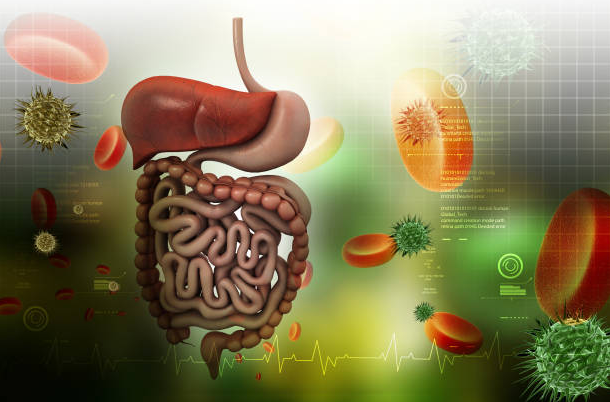Introduction: Understanding the Gut Microbiome
The human gut is home to trillions of microorganisms, collectively known as the gut microbiome. This ecosystem of bacteria, fungi, viruses, and other microbes plays a crucial role in maintaining health. While many people associate gut health with digestion, research increasingly shows that the gut microbiome has far-reaching effects on various aspects of health, including immune function, mental health, and even weight management.
In this article, we’ll explore the importance of gut health, how the microbiome impacts your overall well-being, and practical strategies to support a healthy gut.
What is the Gut Microbiome?
The gut microbiome consists of a complex community of microorganisms that live in your digestive tract. These microbes include beneficial bacteria that help break down food, produce vitamins, and protect against harmful pathogens. The balance of bacteria in your gut is essential for maintaining homeostasis—when this balance is disrupted, it can lead to digestive disorders, immune dysfunction, and other health issues.
How Gut Health Affects Overall Wellness
- Digestive Health The primary role of gut bacteria is to help break down complex carbohydrates, fiber, and other substances that the human body can’t digest on its own. A healthy gut microbiome produces short-chain fatty acids (SCFAs), which are important for colon health and help prevent conditions like irritable bowel syndrome (IBS), inflammatory bowel disease (IBD), and constipation.
- Immune System Regulation Approximately 70% of the immune system is located in the gut. The gut microbiome plays a crucial role in training the immune system to differentiate between harmful pathogens and harmless substances. An imbalanced gut microbiome, known as dysbiosis, is linked to autoimmune diseases and chronic inflammation, which can trigger allergies and autoimmune conditions like rheumatoid arthritis and lupus.
- Mental Health and the Gut-Brain Axis The gut and brain are connected through the gut-brain axis, a communication network that links the emotional and cognitive centers of the brain with the digestive system. Gut bacteria produce neurotransmitters like serotonin and dopamine, which regulate mood and mental health. Research shows that an imbalanced gut microbiome is associated with mental health disorders such as anxiety and depression.A study published in Nature Microbiology found that individuals with depression often had a less diverse microbiome compared to those without depression, highlighting the importance of gut health for mental well-being.
- Weight Management and Metabolism Your gut microbiome also plays a role in regulating metabolism and weight management. Some gut bacteria are more efficient at extracting energy from food, which can lead to weight gain. Additionally, an unhealthy gut microbiome can promote insulin resistance, leading to obesity and metabolic disorders such as type 2 diabetes.A study from Cell Metabolism found that individuals with obesity had different gut bacteria compared to those with a healthy weight, suggesting that manipulating the gut microbiome may help support weight loss and improve metabolic health.
Signs of an Unhealthy Gut
Recognizing the signs of poor gut health is the first step in taking action to restore balance. Some common signs include:
- Chronic digestive issues like bloating, gas, diarrhea, or constipation
- Food intolerances or sensitivities
- Frequent infections or illnesses
- Unexplained fatigue or sluggishness
- Mood disorders like anxiety or depression
- Skin problems such as eczema or acne
How to Support a Healthy Gut
- Eat a Fiber-Rich Diet Fiber is essential for feeding beneficial gut bacteria. A diet high in fruits, vegetables, whole grains, and legumes promotes the growth of good bacteria, which produce SCFAs that protect the gut lining. Foods rich in prebiotic fibers, such as garlic, onions, and asparagus, serve as fuel for these beneficial bacteria.
- Incorporate Probiotic-Rich Foods Probiotics are live bacteria that confer health benefits when consumed in adequate amounts. Fermented foods such as yogurt, kefir, sauerkraut, kimchi, and kombucha are natural sources of probiotics that can help balance the gut microbiome. Probiotic supplements may also be beneficial for those with specific gut health concerns.
- Avoid Excessive Sugar and Processed Foods A diet high in refined sugar and processed foods can negatively impact gut health by promoting the growth of harmful bacteria and reducing microbial diversity. Reducing your intake of sugary snacks and processed meals can help maintain a healthier balance of gut bacteria.
- Stay Hydrated Water is essential for the health of your digestive system. Proper hydration helps move food through the digestive tract and supports the mucosal lining of the intestines. Staying hydrated can also prevent constipation and support nutrient absorption.
- Exercise Regularly Physical activity has been shown to improve the diversity of gut bacteria, which is a key indicator of gut health. Regular exercise promotes the growth of beneficial microbes and reduces inflammation. Moderate-intensity exercises like walking, jogging, and yoga are especially helpful in supporting gut health.
- Manage Stress Chronic stress can disrupt the balance of bacteria in the gut, leading to digestive problems and inflammation. Stress-reduction techniques such as meditation, deep breathing, and yoga can help manage stress levels and improve gut health. Prioritizing sleep is also essential, as poor sleep can negatively impact the gut microbiome.
The Role of Antibiotics and Gut Health
While antibiotics are essential for treating bacterial infections, they can also disrupt the gut microbiome by killing both harmful and beneficial bacteria. After a course of antibiotics, it’s crucial to focus on rebuilding the gut microbiome by consuming probiotic-rich foods and prebiotics to restore balance.
Overuse of antibiotics can lead to antibiotic resistance and long-term changes in the gut microbiome, so it’s important to use them only when necessary and under the guidance of a healthcare professional.
Conclusion: Prioritizing Gut Health for Long-Term Well-being
Your gut microbiome is intricately linked to nearly every aspect of your health, from digestion and immune function to mental health and weight management. By nourishing your gut with a fiber-rich diet, probiotic foods, regular exercise, and stress management techniques, you can support a healthy microbiome and improve your overall well-being.
Maintaining a balanced gut is not only key to preventing digestive disorders but also to optimizing long-term health outcomes. As more research uncovers the critical role of the gut microbiome, it’s clear that taking care of your gut is one of the most important steps you can take for your health.
Sources:
- Sonnenburg, Justin L., and Erica D. Sonnenburg. The Good Gut: Taking Control of Your Weight, Your Mood, and Your Long-Term Health. Avery, 2015.
- Cryan, John F., and Timothy G. Dinan. “Mind-Altering Microorganisms: The Impact of the Gut Microbiota on Brain and Behaviour.” Nature Reviews Neuroscience, 2012.
- Spector, Tim. The Diet Myth: The Real Science Behind What We Eat. Weidenfeld & Nicolson, 2015.
- McBurney, Mike I., et al. “The Importance of the Microbiome in Public Health.” Journal of the Academy of Nutrition and Dietetics, 2015.
- Bischoff, Stephan C., et al. “Intestinal Permeability – A New Target for Disease Prevention and Therapy.” BMC Gastroenterology, 2014.

